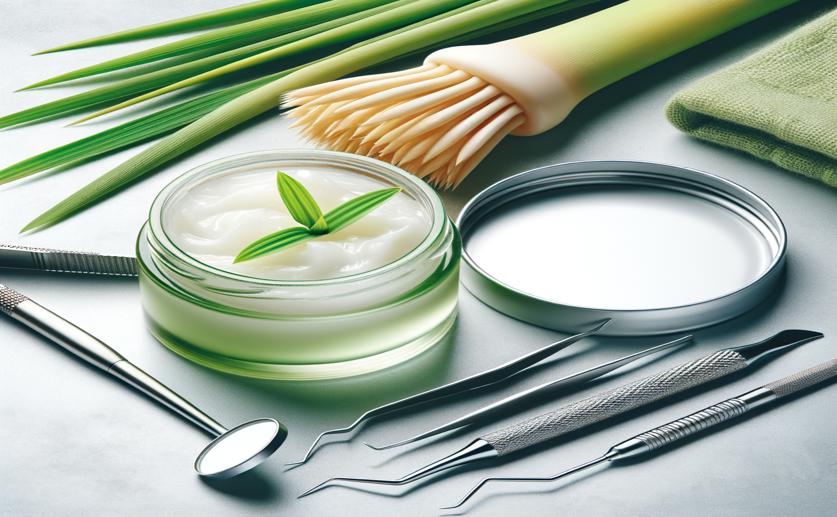
Dental Tissue Conditioner with Lemongrass Oil: How Well Does It Hold Up?
Jenn Hoskins
9th August, 2024

Image Source: Natural Science News, 2024
Key Findings
- The study from Mahidol University explored using lemongrass essential oil in tissue conditioners to improve oral health in maxillectomy patients
- Lemongrass essential oil at 1.77% concentration maintained the mechanical properties of tissue conditioners and provided effective antifungal protection
- Higher concentrations of lemongrass essential oil (≥3.56%) and Nystatin reduced the bond strength of tissue conditioners, potentially compromising their durability
References
Main Study
1) Mechanical properties of dental tissue conditioner containing lemongrass essential oil.
Published 7th August, 2024
https://doi.org/10.1016/j.prosdent.2024.07.014
Related Studies
2) A simple technique to fabricate a surgical obturator restoring the defect in original anatomical form.
3) Common oral complications of head and neck cancer radiation therapy: mucositis, infections, saliva change, fibrosis, sensory dysfunctions, dental caries, periodontal disease, and osteoradionecrosis.
4) Oral Candidiasis among Cancer Patients Attending a Tertiary Care Hospital in Chennai, South India: An Evaluation of Clinicomycological Association and Antifungal Susceptibility Pattern.
5) Isolation of Candida spp. from denture-related stomatitis in Pará, Brazil.



 8th August, 2024 | Greg Howard
8th August, 2024 | Greg Howard